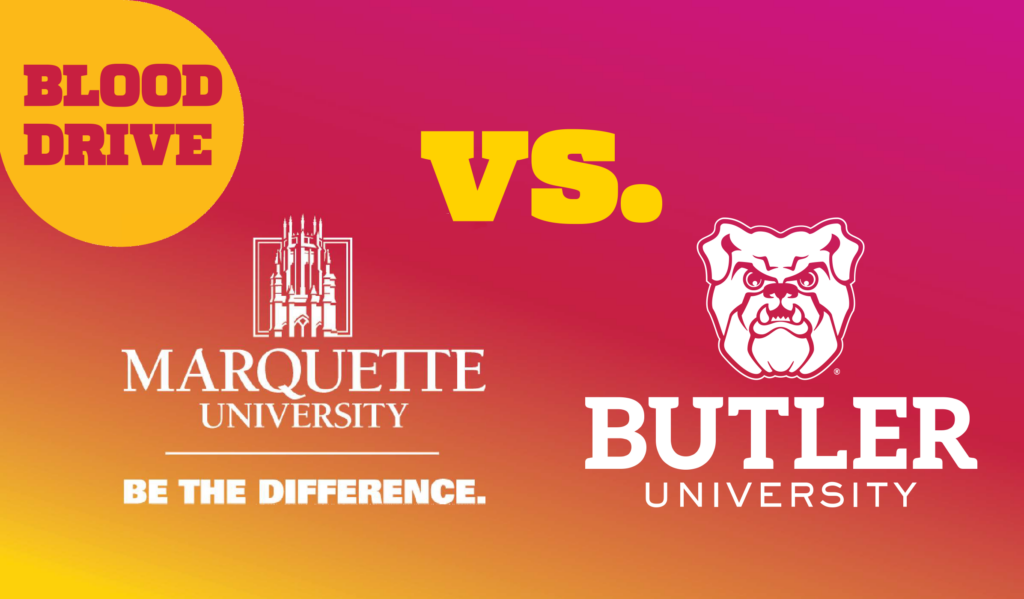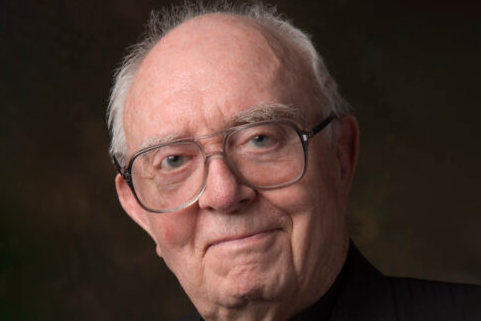
Marquette University and Butler University are renewing their blood drive competition for a second year in an effort to collect a combined 900 units over the course of the academic calendar.
Marquette will host 10 all-campus drives and additional drives within residence halls in partnership with Versiti Blood Center of Wisconsin beginning in September and running through April 2024. Marquette’s goal is to collect 500 units.
The first drive is Tuesday, Sept. 12, from 10 a.m. to 4 p.m. in AMU 252, the Henke Lounge and the Lunda Room. Donors will receive a long-sleeved T-shirt.
All drives will have a donor incentive, ranging from a $10 e-gift card, a t-shirt or other items. All donors during the school year are eligible to win one of two $250 gift cards to Book Marq.
Employees do not have to clock out to participate in a drive. Supervisor approval is required.
Departments or student organizations interested in getting involved are encouraged to “adopt a drive.” Email Kasie Van Sistine, project manager in the Office of University Relations, for more information.
Donations can also go toward the battle outside of specified drives. Use the code “#marquette” in the appointment notes while scheduling with Versiti.
The Marquette community donated 434 units of blood during the 2022-23 academic year as part of the first competition with Butler. Thanks to 393 donors, the campus community helped save 1,302 lives. The combined effort with Butler resulted in 2,367 lives saved.
Marquette and Butler are both members of the BIG EAST Conference for athletics and meet annually in 14 intercollegiate sports.
About 37 out of every 100 Americans are eligible to donate blood, but only three to four out of that 37 donate each year. If just 1% more of the American population donated, shortages would disappear.
Some fast facts on blood donation:
- Just one blood donation can save up to three lives (One hour of time equals three lives saved)
- Someone needs blood every two seconds
- On average, one in every seven people entering a hospital will need blood
- Every day in the United States, 29,000 units of red blood cells are required in hospitals and emergency treatment facilities


